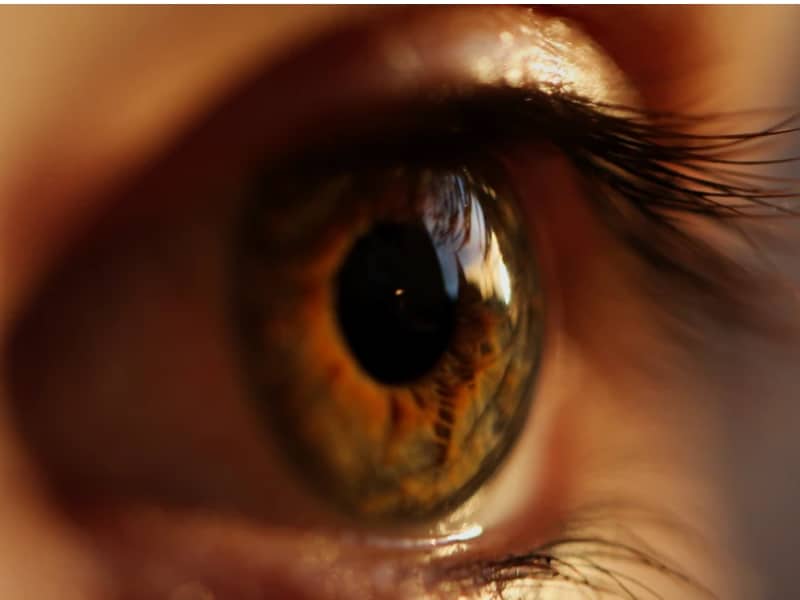It can be easy to fall into a pattern of doing things for others, rather than ourselves. To undervalue our present wellbeing. But eventually, this can cause burnout, and then we’re no good to anyone. Even Superman needs to take a day off.
Without some time for ourselves and allowing some well-earned relaxation, we may end up having a negative impact on the things we’re trying so hard to maintain. For example, we can end up resenting the things we’re trying to maintain or develop. In order to avoid such things, we need to check in with and focus on ourselves more regularly.
That can seem difficult, of course. In this article, I’ll explore how to turn that around and why it’s important to focus on yourself every now and then.
Contents
The benefits of focusing on ourselves
Taking the time to focus more on ourselves not only helps to avoid burnout but brings more joy and contentment to our lives.
Workaholics and people pleasers are far more likely to have stress-related breakdowns. And those who actively seek self-awareness and pursue their own pleasures are much more likely to be resilient and content.
Dragging our feet over and over again through a sense of obligation can leave us feeling run down, depressed, and depersonalized. It can cause us to no longer care about the very things we keep throwing ourselves into. But that’s not all.
Studies on the importance of focusing on yourself more
Between 2000 and 2001, a study in Finland showed that burnout not only causes depressive symptoms and depersonalization but physical issues too.
Burnout was linked to higher cases of cardiovascular diseases and musculoskeletal disorders. So not only is over-devotion to external things bad for our emotional wellbeing, but our physical well-being too.
Conversely, creativity, hobbies, and other leisure activities have been shown in studies to improve general wellbeing. And there are countless others that demonstrate the countless benefits of self-care and self-reflection i.e. focusing on one’s self.
The negative effects of self-negligence and burnout are hard to ignore from these studies but all too easy to allow in our individual lives. Thinking of ways to circumvent them requires actual effort, stopping and taking the time to do so.
So, what does focusing on ourselves really mean and how do we go about it?
💡 By the way: Do you find it hard to be happy and in control of your life? It may not be your fault. To help you feel better, we’ve condensed the information of 100’s of articles into a 10-step mental health cheat sheet to help you be more in control. 👇
What focusing on yourself really means
Focusing on yourself doesn’t mean disregarding others and sitting around watching Netflix all the time. Nor does it mean excessive self-reflection and journaling.
Like all things, it’s about finding a balance.
Our other obligations are important and still require time. And outside of those commitments, perceived or otherwise, there are different aspects of self-care that need attention. An increase in bubble baths is all well and good, but not going to encompass everything.
Focusing on different areas in our lives
Focusing on ourselves means focusing on all our needs, which include:
The physical:
- Some form of exercise.
- Good sleep.
- Healthy eating.
The emotional:
- Self-love.
- Intimacy with others.
- Allowing and feeling emotions.
- Psychotherapy.
The inspirational/spiritual:
- Time in nature.
- Pursuing our interests.
- Creativity.
- Meditation.
- Community (support groups, volunteering, etc).
- Helping others.
- Making others happier.
The occupational and intellectual:
- Taking time off; from lunch breaks to holidays, mental health, and sick days.
- Considering what we do and why we do it.
- Learning new things.
- Discovering new interests.
- Leaving work at work.
The personal:
- Actively taking time to relax.
- Indulging pleasures.
- Maintaining a routine.
- Journaling.
- Maintaining and forging relationships.
8 ways we can focus on ourselves and build contentment
If you’re someone who pays a little too much attention to things outside your own life, you might already be looking for ways to pay attention to yourself. Or, at least realize it’s important to do so.
In that case, you might find some of these suggestions helpful.
1. Designate time for yourself
Instead of hammering out work emails at home, or taking precious free time to facilitate the desires of loved ones, it’s good to take some free time for yourself. Time to just be.
A direct way to relax is to make specific time available in your calendar for free time. For example, take designated time to take a bath, meditate, go out for dinner with a friend, or to go shopping.
We recently asked out Instagram followers what’s on their to-do list that never gets done.
2. Start journaling
Journaling in varying forms can be a great practice for self-identification and self-care. Through continual journaling, you can discover your inner voice that may otherwise go unheard in your day-to-day living.
This can help you to discover what it is you really want, and separate it from the needs of external people and factors.
Furthermore, journals can be a great place to practice gratitude and affirmations, which may help build confidence and self-esteem.
3. Look into psychotherapy and counseling
Possibly one of the greatest ways to focus on ourselves is with professional assistance. A counselor or psychotherapist is trained to help us with ourselves. Therapy can really help us to focus on ourselves more and less on others.
If you’re wondering how therapy can help you become happier, here’s a specific article on the topic!
4. Set boundaries and say no
In order to work on yourself, especially if you’re busy or have a tendency to put others first, you must practice assertiveness. Some ways to do this are:
- Saying no sometimes instead of yes.
- Allowing specific circumstances in which you will do something for others, and determining circumstances in which you won’t.
- Turn your phone off if necessary, and pour some of that time and effort back into yourself.
Here are more tips on how to be assertive that can help you focus on yourself more instead of on others.
5. Actively do things for you
Focusing on yourself doesn’t mean sitting around disregarding everything else.
But it’s important to indulge in our passions and interests, to take ourselves out and engage in activities that inspire and satisfy our innermost needs.
This might be as simple as going to the cinema to see that film you’re interested in. Or as big as taking that volunteering opportunity in Costa Rica that’s always called to you.
6. Practice checking in with yourself
In order to discover what you want, you need to actually listen to yourself. Instead of automatically saying yes to something, take a moment to reflect. If you don’t want to do it or would rather do something else, listen to that feeling.
Meditation, journaling, and mindfulness can certainly help build this practice. Tuning into our true feelings more often can be hard, but it’s difficult to overstate its value.
7. Avoid idleness and false self-care
The object of this article is to promote a focus on one’s self, but it would be a mistake to confuse this with self-obsession or idleness. These things don’t help you focus on yourself in a productive way. They’re simply more ways of ignoring the inner needs of our emotional selves.
To improve well-being, we must find a balance, and focus on things that truly bring us more joy and contentment. Passions, hobbies, creativity, exercise, and even socializing and helping others (though on our terms) are all great ways to truly focus on ourselves in an important and positive way.
8. Find the right balance of self-care
Instead of bending over backward for others every day, balance and streamline your life by focusing on yourself more often. Focusing on ourselves doesn’t mean working ourselves to death with things we should do, nor does it mean lazing around and ruminating. It means finding the balance of work, play, self-fulfillment, and self-care.
How to focus on yourself FAQ
You might find some of these suggestions helpful:
1. Designate time for yourself.
2. Start journaling.
3. Set boundaries and say no.
4. Avoid idleness and false self-care.
Absolutely! Without some time for ourselves and allowing some well-earned relaxation, we may end up having a negative impact on the things we’re trying so hard to maintain. Eventually, this can cause burnout, and then we’re no good to anyone.
Focusing on yourself by pursuing creativity, hobbies, and other leisure activities has been shown in studies to improve general wellbeing. Also, those who actively pursue their own pleasures are much more likely to be resilient and content.
💡 By the way: If you want to start feeling better and more productive, I’ve condensed the information of 100’s of our articles into a 10-step mental health cheat sheet here. 👇
This Cheat Sheet Will Help You Be Happier and More Productive
Thrive under stress and crush your goals with these 10 unique tips for your mental health.
Wrapping up
Taking care of ourselves actually improves relationships with work and others, as it improves our general happiness and fulfillment. Without focusing on ourselves enough, we become depersonalized and eventually depressed. So really it’s a no-brainer to do so. Focus on yourself instead of others, and become a happier person in the process. By following the tips in this article, you’ll be a more positive person to be around, and in turn, will share more happiness in your life.
Was there anything I missed? Do you want to share a tip that has worked for you personally? I’d love to hear about it in the comments below!




Thank you for this article I really want to focus less on my relationship and more on myself — this really spells out steps to that very clearly
I especially like the point that journaling can help you discover what your needs are because I think I’ve focused too much on relationship for so long that I have no idea what would be good just for me and in fact lost some track of who I am in a way.
Thanks for sharing this, Jules. I’m really happy you found our work valuable! Good luck!
All the best,
Hugo
I’m in a similar situation with myself. Good luck! I hope you find yourself again.😎 I started looking for myself again today😊. This article is very helpful.